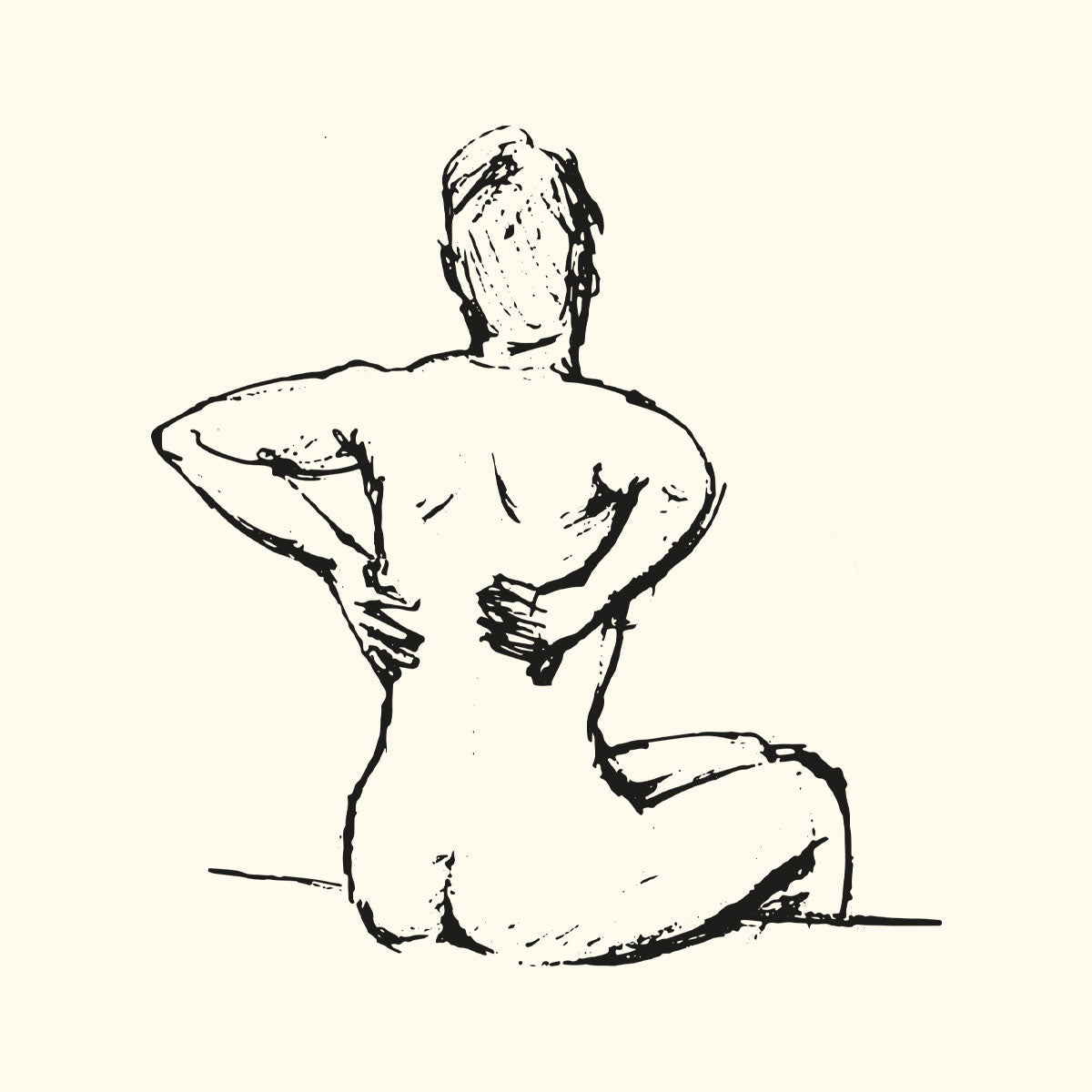Let's start with the basics, courtesy of our co-founder Kim.
Every member of the KLORIS team is a huge fan of CBD. Not because of the hype, but because of real-life experience of the benefits. In fact, that's how we came to start the business.
While we’re advocates though, we're also driven by good science and by truth and transparency. We’ll be the first to tell you that not all CBD is the same and not everything you read about CBD is true – both good and bad.
While we would love to give you all the answers, it wouldn’t be appropriate for us to do that. Current regulations on selling CBD in the UK actually restrict an awful lot of what we can say.
However, as a brand led by a desire to do good in the world, your wellbeing is always at the forefront for us. What better way to help you on your journey to a happier, healthier self than by giving you the information you need to make informed decisions?
If you’re hoping to find out the truth about CBD and whether it’s right for you, start right here.
We've designed this to be a good starting point for your own, deeper investigation. You’ll be astounded by what you find!
Let's begin by separating some CBD facts from fiction.

Is CBD the same as cannabis? Is it legal in the UK? Will it get me high?
There’s one, glaringly obvious question which stands out above all else in the CBD world: is CBD cannabis or hemp?
Here’s the first truth bomb – cannabis, hemp and even marijuana are different names for what is essentially the same plant.
In the UK, CBD is derived (extracted) from industrial hemp, but what ‘industrial hemp’ really means is a strain of cannabis (Cannabis Sativa L.) with a THC content of 0.2% or less. Cannabis (or Marijuana), is the name given to plants with 0.2% THC or more. To make things even more confusing, this limit varies in different countries.
CBD, the compound, is completely legal in the UK and many other countries. The problem comes from the sister compound found in the same plant, THC, which is illegal in many countries, including the UK.
THC is the intoxicating, psychotropic compound found in cannabis that causes the ‘high’.
CBD, by comparison is not psychotropic or intoxicating ('mind-altering'), but it is considered psychoactive, meaning it has an effect on mood and consciousness.
In the UK, the legal limit for THC in finished products is exceptionally low - no more than 1mg per container. That's equivalent to less than 0.01% of a 10ml bottle, below detectable limits in most commercial tests. The 0.2% rule only applies to the source plant itself, finished products with greater than 0.01% are illegal.
This means that CBD products you buy in the UK should, legally, never contain anything like enough THC to get you high, despite being derived from a flowering plant in the Cannabaceae family.
Dr. Julie Moltke explains CBD in a bit more detail.
But, while we’re here, it’s worth asking ‘what’s so bad about Cannabis anyway?’
The truth is, Cannabis has had a pretty bad rap since prohibition in the 1920s, later bolstered by Nixon’s infamous ‘war on drugs’. This was very much driven by political and commercial agendas, not by good science or health issues.
The result of this, since largely debunked, propaganda against a plant which has been used in an incredible array of ways for thousands of years, was the unintentional outlawing of one of the world’s oldest domesticated crops, hemp.
Even now, the difference between classifications and uses of different types of cannabis is a minefield, which makes unfair scepticism over the use of hemp derived products very common.

What is CBD?
So, now we’ve cleared up where it comes from, let’s look at what CBD actually is.
CBD stands for cannabidiol, one of over 120 of the chemical compounds known as cannabinoids that have been identified so far in the cannabis plant.
It is found in high concentrations in the flower or bud of the plant, with small amounts in the stalk.
There is no CBD found in the seed of the cannabis plant, so if a product lists cannabis sativa SEED oil, this is something quite different. Cannabis seed oil is special in its own way, but don’t be tricked into thinking it is the same as the more costly compound CBD.
As a result of being outlawed for so long, research into the benefits of CBD and fellow cannabinoids is still in fairly early stages (ongoing since around 1995), but what has been discovered so far is nothing short of incredible.
Inside our body, we have what is called an endocannabinoid system – a complex network which is involved in regulating almost all bodily processes.
Our bodies naturally produce our own cannabinoids (endocannabinoids) that interact with this system’s receptors, which can be found pretty much all over the human body, and this influences all sorts of functions from sleep to digestion. Many ailments have been linked to imbalances in the endocannabinoid system.
Amazingly, the cannabinoids produced by the cannabis/hemp plant also interact with our endocannabinoid system in a similar way to encourage greater communication, balance and function.
In fact, the endocannabinoid system is so named because of the similarity between our own endocannabinoids and those found in cannabis.
Read more about this in our educational blogs ‘REDUCE STRESS WITH CBD – HOW IT WORKS AND WHY’ and ‘CBD & PAIN RELIEF: HOW CBD CAN HELP TO REBALANCE YOUR BODY’.
What is a good way to get started with CBD?
We created our Regimens as an easy way to get started with the best CBD products and routines for your desired outcomes.
Can CBD made in the UK?
CBD is completely legal for use in the UK, and we can manufacture products containing CBD in the UK. It’s even possible to get a Home Office licence to grow industrial hemp in the UK.
Different CBD products are covered by different legislation in the UK.
- CBD oil can only be sold as a food supplement and must be manufactured according to GMP (Good Manufacturing Practices) and Food Standards regulations.
- Cosmetic (topical) products must meet the strict requirements of UK Cosmetics Regulations, be registered with the UK Cosmetics Notification Portal and be safety tested, with a Cosmetic Product Safety Report (CPSR).
Unfortunately, under current legislation, the buds and flowers of hemp plants (where CBD is found) are considered controlled substances under UK law. This means that they cannot be legally harvested and have to be destroyed. It also means that CBD 'flowers' and buds cannot be sold for smoking or other purposes in the UK, even if they come from a legal EU source.
As a result it is currently impossible to legally produce CBD from scratch in the UK, or even extract it from imported plant matter - all CBD has to be imported as either isolate or distillate from other countries.

Which kind of CBD is right for me?
If you’ve decided you’d like to give CBD a go, chances are you’ve already discovered that there are thousands of options available. So, how do you choose?
There are a number of very important things to know when it comes to shopping for CBD products:
• Method of extraction
In order to use CBD, it first has to be extracted from the cannabis plant material.
Many brands use low cost extraction processes involving toxic solvents and chemicals which if not properly removed can be so harmful to your body that they kind of negate the benefits CBD has to offer. They can also have negative environmental impacts.
Brands who know their stuff (like KLORIS!) favour a method called Supercritical CO2 Extraction to get all the goodness from the plant with no need for chemicals and no nasty byproducts. This is expensive but very precise and clean.
• Check the ingredients
There are some products out there touting themselves as CBD, which actually contain no CBD at all. CBD is only present in the flowers or bud of the plant, not in the seeds so make sure the ingredients clearly say CBD or ‘cannabidiol’. If they only mention Hemp Seed Oil, or Cannabis Sativa Seed Oil, there will be no CBD present.
• Isolate or distillate?
CBD as an ingredient is available in two main forms in the UK.
CBD isolate is a purified form of CBD, where as many other compounds from the plant as possible have been removed, leaving a crystalline powder that can be mixed with other ingredients.
It’s worth noting that CBD isolate can never be 100% pure because of the chemical processes involved, so the quality of the original source material and the extraction process used remains important.
CBD isolate is the only form permitted to be used in cosmetic products in the UK and Europe.
CBD distillate preserves many of the other cannabinoids and terpenes from the hemp plant, the combination of which is thought to be beneficial through what has been termed the entourage effect. CBD distillate is generally the preferred basis for high quality CBD oral oils because of this and comes as an oily liquid which is then combined with a carrier oil like MCT to reach the desired potency.
Distillate is generally significantly more expensive to produce as it requires more complex processes to separate the undesired compounds (primarily THC and CBN, which are banned in the UK) from the desirable cannabinoids and terpenes.

• Topical or ingestible? Rub it on or eat it?
CBD is quite miraculous in that it can interact with endocannabinoid receptors both in the brain and throughout the body, many of which are found in the skin and joints.
This means that you can both ingest CBD (people report this being helpful as a sleep aid, for easing anxiety and stress, and even boosting libido amongst many other things) or apply it to the skin (depending on what it is combined with, users report benefits for symptoms ranging from localised pain to inflammation, irritation and dryness).
In its natural form CBD is oil soluble, not water soluble, so is usually mixed with natural oils or butters. This is useful as being oil soluble allows CBD to accumulate in body tissue over time.
CBD oral oil drops are the most popular way to ingest CBD. In these CBD extract is mixed with a carrier oil to a specific strength and the drops can be either placed under the tongue (most effective as this bypasses the digestive system) or swallowed. For use on the skin, combining with butters to create a topical balm, or with oils to create a cosmetic oil, are common effective formats.
CBD patches are a highly convenient way of getting a consistent dose of CBD and also bypass the digestive system, getting straight to the bloodstream for high efficacy. KLORIS offer a range of different doses via patches including a High Strength 50mg CDB Patch.
CBD can be combined with water-based ingredients if an emulsifier is used. Nano-emulsified CBD products (where particles are broken down to tiny sizes, usually using ultrasound) are not legal in the UK.
How many milligrams (mgs) of CBD do I need?
CBD products should list their potency in milligrams (mg), and/or as a percentage strength – this tells you how much CBD is present in the product.
An effective level of CBD will depend on how and what you are using the product for - topical (skin) application works very differently to ingesting CBD, so they should not be compared.
Generally, for CBD oral oil drops, a strength of 5% (50mg per ml of product) to 10% (100mg per ml) is ideal. Lower than this and you'll need to consume a lot to get a reasonable dose. Higher and adjusting dose becomes difficult, plus the taste is often unpleasant.
The UK FSA recommends consuming a maximum of 70mg of CBD orally per day.
CBD oil is most commonly sold in 10ml and 30ml bottles, which is why checking the percentage strength is important. A 30ml bottle containing 500mg of CBD is only one-third of the strength per drop as a 10ml bottle with 500mg, so you will need to take three times the quantity to receive the same dose.
For topical applications, like a CBD balm, strengths from 0.5% - 1.5% are considered to be effective, depending on the intended use.
Always opt for brands who readily offer their lab testing certificates, so you can see for yourself what the product contains. Unless you’re buying a CBD isolate, there will be other cannabinoids listed too – this is a good thing! Cannabinoids work together in synergy to create what is called ‘the entourage effect’, meaning they all interact with the body’s endocannabinoid system (ECS) for the best possible results.

Always choose organic
Hemp is a bioaccumulator, meaning it sucks up everything in the ground where it grows. This is great if the soil it grows in is organic and nutrient rich, but not so good if it’s grown on land overflowing with toxic waste, or soaked with pesticides.
Hemp is widely used as a ‘clean up plant’ to help mop up chemicals from contaminated soil. As you can probably imagine, CBD derived from a plant used to absorb pollutants is not something you want to put into your body. Make sure you know the origins of your product before you buy and never opt for a non-organic cheaper option. Your wellbeing is worth so much more than that!
Who shouldn’t take CBD?
As with any supplement, it’s always recommended to talk to your doctor before taking CBD, especially if you are taking medication. CBD is know to be metabolised in the liver by cytochrome P450 (CYP450), a family of enzymes that breaks down over 60 percent of prescription medications and so could increase or decrease sensitivity to other drugs. For example, some possible interactions with blood thinners like Warfarin have been reported.
The UK Food Safety Agency (FSA) recommends that pregnant or breastfeeding women should not currently use CBD because of the lack of safety evidence for CBD in young children. Similarly, CBD should only be used by adults.
Reports of side effects from CBD use in humans are extremely rare. In fact, CBD is considered a very safe compound - a 2017 review of clinical research states "In general, the often described favourable safety profile of CBD in humans was confirmed and extended by the reviewed research."
The World Health Organisation has stated that there are no public health risks or abuse potential for CBD.
Novel Foods & CBD
There’s a lot of talk lately about CBD and Novel Foods legislation. This is a complex area beyond the scope of this article but in summary, any CBD product that is intended to be ingested (so oral oils, gummies, drinks etc) has to have a valid Novel Foods application filed in either the UK or Europe by 31st March 2021 in order to remain on sale.
The application process is very comprehensive (and expensive) and is designed to ensure that products are consistently safe for people to consume. The bulk of the process is the responsibility of the raw material producers (who make the base CBD extracts) rather than the finished product makers (like KLORIS) but it is a process that we at KLORIS approve of and are very much engaged in, because we believe that ensuring the quality and safety of the CBD products out there is paramount.
Disclaimer: If you are pregnant, breastfeeding, taking any medications or under medical supervision, please consult a doctor or healthcare professional before use.
Kloris is owned and operated by Kloris Enterprises Ltd. a company registered in England & Wales, number 11486144. Registered Office: 27 Old Gloucester Street, London, WC1N 3AX. Email: info@kloriscbd.com Phone: +44 (0)20 8050 2862






